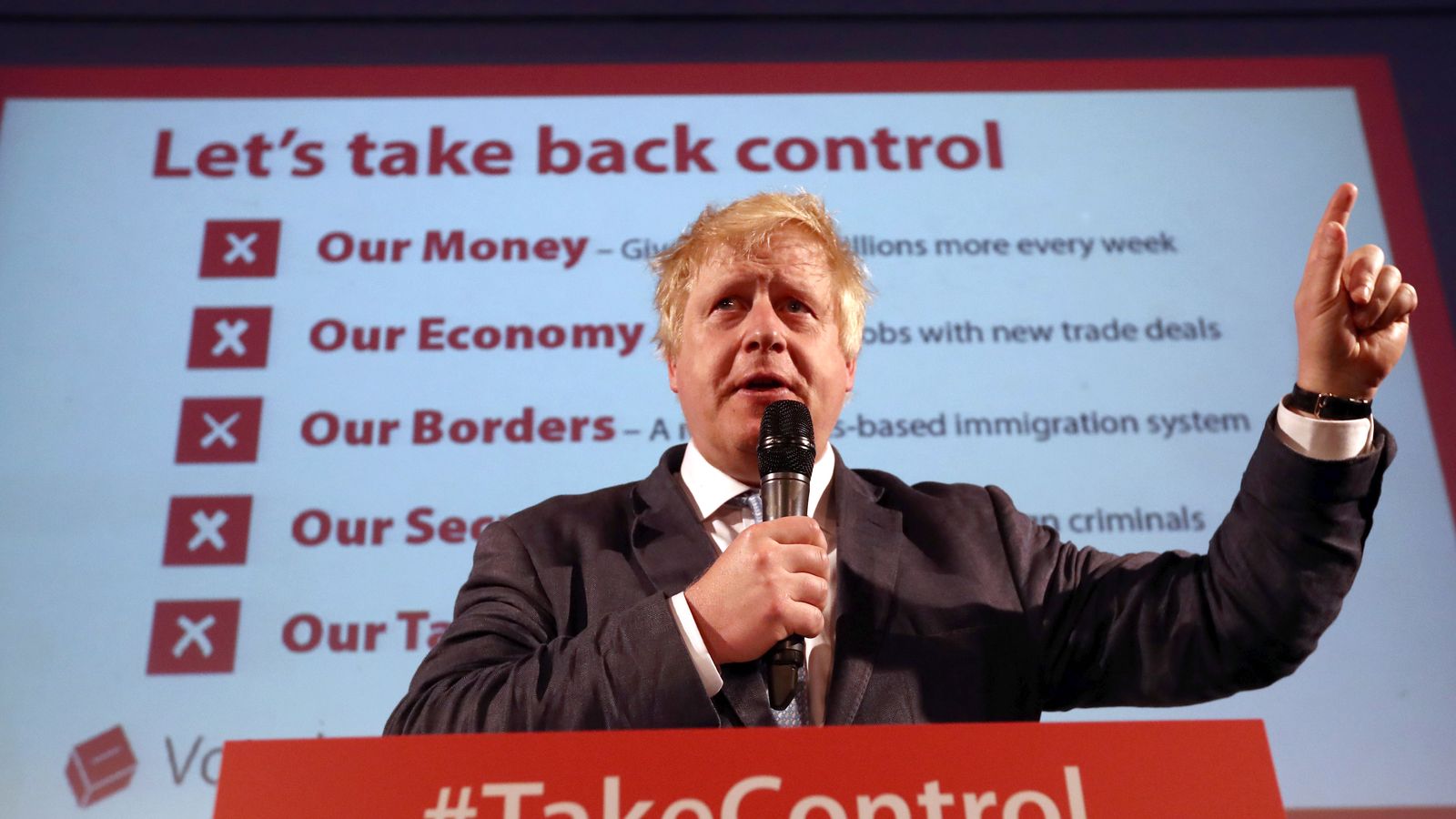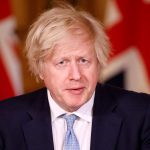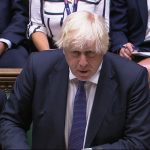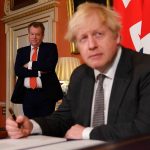Public support for Brexit has reached an all-time low, new polling shows.
A survey from YouGov reveals only 32% of Britons believe it was right to leave and 56% think it was wrong.
The gap is the largest yet and marks a big swing in opinion, particularly since June 2021. In contrast, polling before the 2017 general election had suggested that more people believed Brexit was the right decision than not.
Autumn statement latest: Higher energy price cap and sticking with pensions triple lock
One in five people who voted for Brexit now believe it was the wrong decision.
Over the last 18 months, the percentage of Brexiteers who believe voting to leave the EU in 2016 was the right decision has dropped from 88% to a record low of 70%. Meanwhile, the number of Brexiteers who believe Brexit was the wrong thing to do has soared from 4% to 19%.
Remain voters are more likely to have stood by their decision, with nine in 10 still believing Brexit was wrong.
Northern Ireland Secretary Chris Heaton-Harris confirms plan to push back deadline to hold Stormont election
Northern Ireland: Why is there still no assembly and what does Brexit have to do with it?
Rishi Sunak: How big is the task ahead?
The survey comes as Chancellor Jeremy Hunt unveils a £54bn package of tax rises and public spending cuts to weather an economic “storm” that some have blamed on Brexit.
On Monday, former Bank of England (BoE) policymaker, Michael Saunders, said leaving the EU has “permanently damaged” the UK economy and is the ultimate reason for the fresh round of austerity.
He was speaking as London was deposed as Europe’s biggest stock market.
Mr Saunders told Bloomberg TV there had been a “chaotic period” since the 2016 referendum.
“The UK economy as a whole has been permanently damaged by Brexit,” he said.
“It has reduced the economy’s potential output significantly, eroded business investment.
“If we hadn’t had Brexit, we probably wouldn’t be talking about an austerity budget this week – the need for tax rises, spending cuts wouldn’t be there, if Brexit hadn’t reduced the economy’s potential output so much.”
Read more:
UK risks ‘brain drain’ as scientists leave to avoid losing EU funding
Please use Chrome browser for a more accessible video player
The bleak assessment was repeated by Dr Swati Dhingra, a current member of the BoE’s monetary policy committee, who warned: “It’s undeniable now that we’re seeing a much bigger slowdown in trade in the UK compared to the rest of the world.”
Pointing to the fall in the value of the pound, she said that wages are “about 2.6 % below the trend that real wages otherwise would have been on”, without EU withdrawal.
The success of the UK’s independent trade policy – one of the key reasons for leaving the EU for many Brexit-supporters – was also questioned by Tory former cabinet minister George Eustice this week, who said an agreement reached with Australia was not “a very good deal” for the UK.
Mr Eustice, who campaigned for Brexit, criticised key elements of the flagship trade deal, the first to be negotiated from scratch by the UK outside the EU, and a similar arrangement with New Zealand.
“The truth of the matter is that the UK gave away far too much for far too little in return,” Mr Eustice told MPs.






















